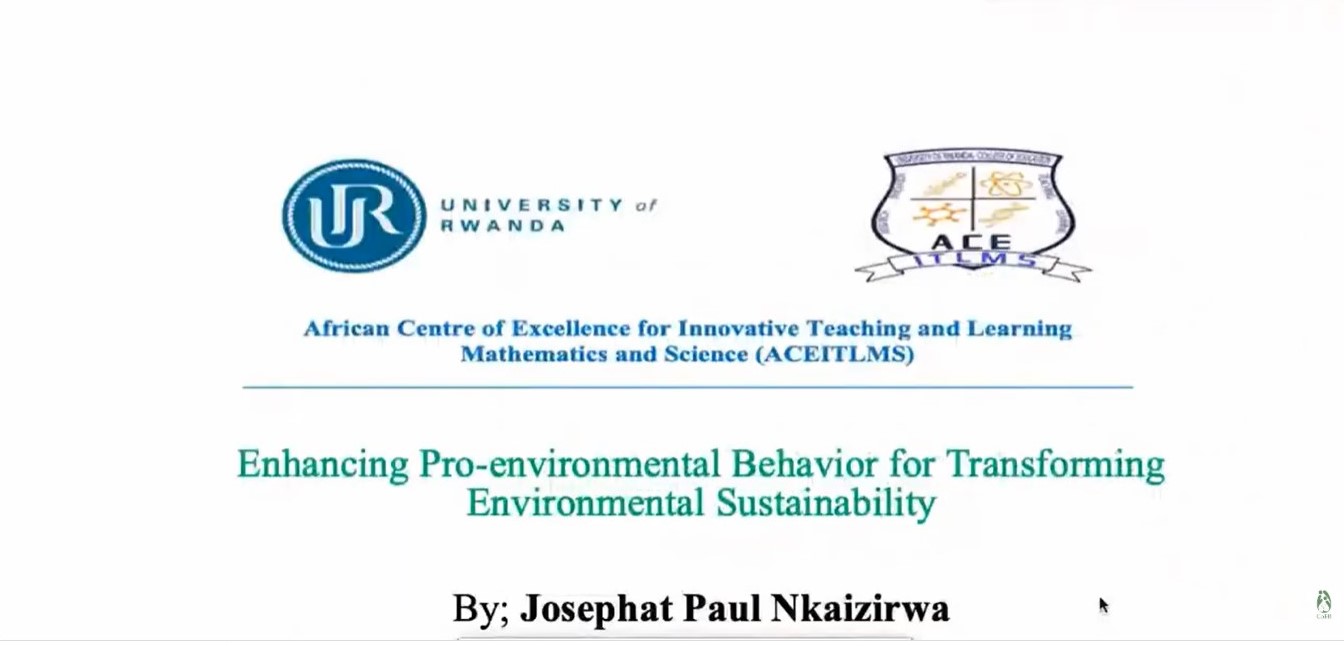
Biography
Mr. Josephat Paul Nkaizirwa is a Ph.D. student in Biology Education at the African Centre of Excellence for Innovative Teaching and Learning Mathematics and Science (ACEITLMS) hosted by the University of Rwanda-College of Education (UR-CE). Mr. Josephat Paul Nkaizirwa holds a BSc (Science Education) and MEd (Science Education) both from the University of Dar es Salaam (Tanzania) awarded in 2009 and 2014, respectively. He is also an Assistant Lecturer at the University of Dodoma, Tanzania. Josephat’s Ph.D. research focuses on Enhancing Environmental Knowledge and Attitudes among Pre-service Biology Teachers in Tanzania Using Inquiry-Based Learning. His study aims at employing the contemporary pedagogical approach in enhancing psychological constructs among the pre-service teachers towards the protection and conservation of ecological resources. Considering the potential contribution of individual attitudes and cognition in ecological conservation, his study intends to use the Two-Major Environmental Values (2-MEV) for evaluating attitudinal constructs whereas the Environmental Competence model examines environmental knowledge dimensions. Both self-reported and observable attitudinal attributes and knowledge dimensions will be measured. Upon successful completion, the study is expected to establish solutions for mitigating environmental pressing issues in Tanzania and other areas with similar situation. Josephat has been involved in different academic projects as an assistant researcher. Some of these include; Teacher Education Support Project-Tanzania (2017-to present), Language Supportive Teaching and Textbooks Project-Tanzania (2017), Capacity Development in Mathematics in Rural and Remote Communities in Tanzania (2017), and Research Follow-up on; Enhancing literacy and numeracy through digital content among primary schools in Nyarugusu Refugee Camp, Tanzania (2017-2019).
